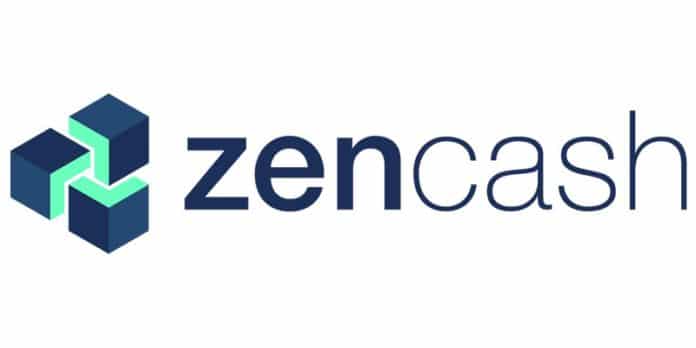ZenCash Secure Node Explained
Last Updated: 1st November 2018
ZenCash is a decentralized privacy-focused cryptocurrency that is based on zero-knowledge cryptography and modified Satoshi consensus. ZenCash aims to serve as a secure platform upon which activities such as sending money, messages and media can be performed privately. One ZenCash feature that is designed to achieve this decentralized and private ecosystem is the ZenCash Secure Node system, which provides client-to-node and node-to-node encryption to prevent data from being seen by third-parties.
Bitcoin’s Satoshi designed consensus process created a digital ecosystem that solved the double-spend problem and created digital scarcity. However, one arguable limitation of the Bitcoin system is that it does not economically incentivize nodes (full nodes) to operate on the network. Node operators are not rewarded for helping to secure the network by verifying that transactions and blocks on the blockchain are formed correctly. Because Bitcoin nodes are not incentivized to perform this task, it is contended by some individuals that the number of nodes operating on the Bitcoin network will decrease as more users begin to transact in bitcoin. The rationale behind this is that the increase in network usage will also likely mean an increase in bandwidth costs, which will subsequently lead to some node operators being priced out of the network due to increased costs.
The ZenCash Secure Node system is designed to serve as a solution to this problem, by appropriately rewarding node operators that dedicate computational resources to help secure the ZenCash network.
ZenCash Secure Node
The Secure Node system is intended to greatly decentralize the ZenCash network, so that censorship resistance across global jurisdictions can be achieved. The Secure Node network is designed to address the following weaknesses commonly found in blockchain infrastructures:
- Security, privacy and integrity of communication between network nodes
- Access prevention to blockchains via means of censorship
- shallow blockchain network node resilience
A ZenCash Secure Node embodies certain functionalities to bring about a network of nodes that are more robust than traditional node or Masternode networks:
Security: Communication between Secure Nodes are fully end-to-end encrypted, allowing for increased levels of security, privacy and integrity.
Censorship Resistance: End-to-end encrypted communication between Secure Nodes increases the censorship resistance of the entire network.
Resilience: By economically incentivizing node operators to help secure the network, the number of Secure Nodes is likely to increase, which then results in a more resilient and decentralized network.
ZenCash Secure Nodes perform services on the blockchain, such as:
- Accepting transactions from wallets
- Employ encrypted communication to other nodes and wallets
- Validating miner solutions
- Effectively serve as a decentralized computing and communications system for users on the network
In order for an individual to become a Secure Node and remain eligible to receive a share of the dedicated Secure Node pool, they must meet the following requirements:
Balances and Challenges
– Maintain a balance of at least 42 zenCash within a transparent address, which serves as collateral for the Secure Node.
– Able to perform a ‘challenge’ in under 300 seconds. A challenge, in the ZenCash protocol, is designed to prove the capability of a node. A challenge consists of a random block being chosen from the blockchain by the ZenCash server, the node will then look up specific information pertaining to the chosen block, and then create a private transaction to send the results back to the server through the blockchain. The server will then determine if the information received matches the block. It is also important to note that challenges are sent out on a periodic basis.
– Maintain a balance greater than 0.001 zenCash in a private address on the Secure Node (executing a challenge consumes 0.0002 zenCash).
– Ability to perform a challenge in under 300 seconds.
– Must be able to successfully perform a challenge within the defined challenge interval, which is currently 72 hours.
Ability and Exceptions
– Must be able to achieve minimal downtime, achieving an availability target of 92% within a reward period.
– Not fall behind the current block height by more than 4 blocks
Network and Security
– A unique dedicated IP address is required for each Secure Node
In exchange for investing the computing resources necessary to safeguard the network as a ZenCash Secure Node, 10% of the block reward is awarded to Secure Nodes.
Setting Up a ZenCash Secure Node
A guide detailing how to set-up and maintain a ZenCash Secure Node can be found below:
The count of Secure Nodes currently operating on the ZenCash network can also be found below:

